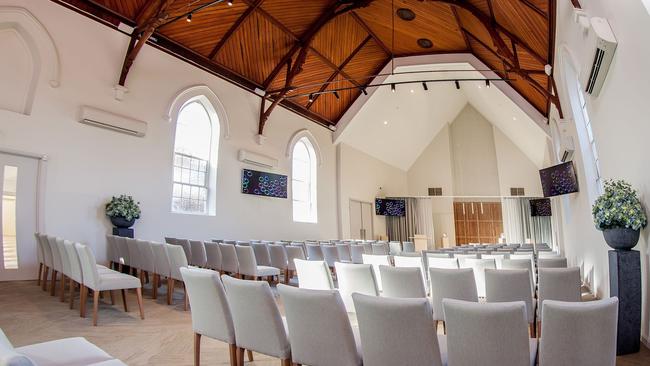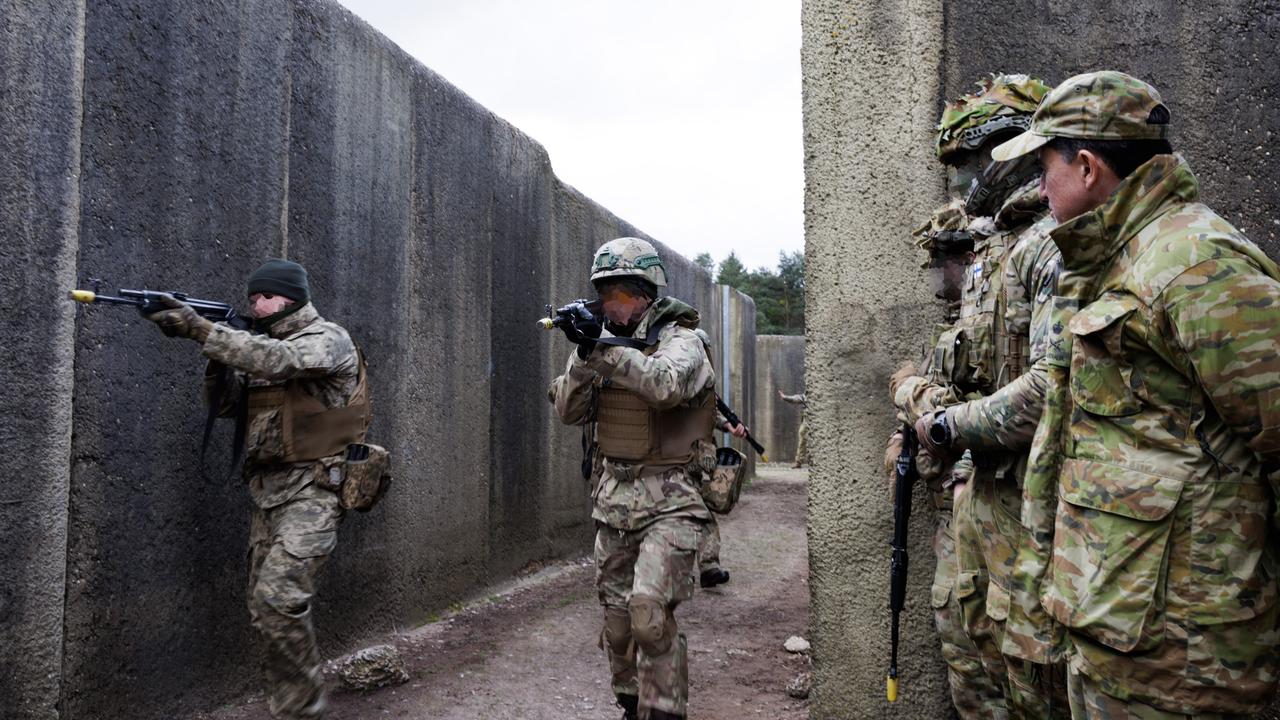Soaring cost of living hits the cost of death, says InvoCare, as Australians cut out prepaid funerals
The cost of living has hit the cost of death, with Australians steering away from prepaid funeral plans to save money as inflation bites.

The cost of living has hit the cost of death, with Australians steering away from prepaid funeral plans to save money as inflation bites, according to the nation’s biggest undertaker and crematorium operator.
ASX-listed InvoCare – which owns 290 funeral homes and brands including White Lady and Le Pine – has swung to a $16.5m half-year loss following a revaluation of its prepaid funeral funds under management.
Volatility across global financial markets wiped $46m off the earnings of the prepaid funerals InvoCare has under management, which are held by The Over Fifty’s Guardian Friendly Society, with more than a third invested in equities.
Compounding the loss, chief executive Olivier Chretien said people were thinking twice about taking out a prepaid funeral plan as the cost of living soars.
“Definitely prepaid sales are more difficult. It’s difficult to expand that segment of the market, including to younger people, at a time when people may be thinking twice,” Mr Chretien said.
“It’s like taking insurance. That’s the type of segment that gets impacted when the cost of living increases.”
But Mr Chretien said when a loved one passes, people are holding bigger funerals and gatherings following the lifting of more than two years of pandemic restrictions.
Invocare’s operating earnings before interest and tax surged 10 per cent to a record $44m in the six months to June 30.

“It’s a reflection of the restrictions have eased, and we have seen an increase in terms of the type of mix we have seen. In Singapore for example, where there were very strong restrictions for attendees and the type of services we could give – catering, flowers and so on – we have seen an increase in funeral services.”
Group revenue jumped 9.4 per cent to $285.4m. InvoCare will pay an interim dividend of 13.5c a share on October 6.
The easing of restrictions also fuelled what Mr Chretien describes as ‘excess deaths’ or people who have died earlier than they would have as Covid-19 circulates more freely in the community.
More than 13,750 Australians have died with the virus, which has infected more than 10 million others.
“We look at what’s happening overseas because we have seen this excess death phenomenon in the northern hemisphere first in countries like the UK and the US. But there it was quite different because the excess deaths there were often people dying early because of the impact of Covid in these markets.
“But in Australia and New Zealand it is difficult because the death rate was fairly low because of all the types of restrictions in terms of border closures and not excess to aged care homes and so on. It’s kind of catch up, I guess.”
Macquarie analysts said InvoCare has had a “positive start to H2 FY22” and “confidence in navigating short-term uncertainties”.
“Eased restrictions expected to support larger, higher-value funerals – early H2 funeral case average up 7 per cent,” said Macquarie investors, who have an underperform rating on the stock and $10.30 price target.
Citi analyst Mathieu Chevrier meanwhile said Invocare’s earnings were better-than-expected, with operating EBIT 4 per cent higher than consensus estimates.
“The result was impacted by Covid disruptions, a spike in ‘excess deaths’, unusually inclement weather and inflationary pressures, which probably limited operating leverage,” said Mr Chevrier, who has $11.25 price target and a neutral rating on the stock.
“We expect the market likely to react favourably to the better than expected result and upbeat 2H outlook.”
UBS analyst Tim Plumbe said while a post-pandemic higher death rate had buoyed InvoCare, it looks to have lost market share, with a 7.5 per cent rise in funeral volumes versus UBS’s industry estimates of 12.8 per cent.
“A big beat versus our numbers, however we are at the bottom end of FY22 consensus (-8% vs EBIT), as we were expecting higher cost reinvestment and lower operating leverage,” said Mr Plumbe, who also has a neutral rating on the stock with a $12.40 price target.
InvoCare shares closed 1.5 per cent lower at $10.99, following a 1.9 per cent drop across the broader share market.
Its pet cremation business, which InvoCare launched in 2019 at 16 sites in five states, delivered a 22 per cent jump in revenue to $16.7m. Meanwhile, earnings before interest, tax, depreciation and amortisation in that division fell 29 per cent to $2.58m. That figure included $1.5m in one-off costs to accelerate the integration of the pet cremation business into the broader group.
“We brought that integration one year forward to be able to go faster. The frictional costs of an accelerated operational integration of the three pet businesses has driven an elevated cost base in the half, further impacted by international supply chain disruptions delaying the receipt of new cremator capacity.
“This increase in cost base ahead of revenue growth has led to an 8-points increase in OPEX (operating expenditure) to sales percentage and a decline in operating EBITDA.”



